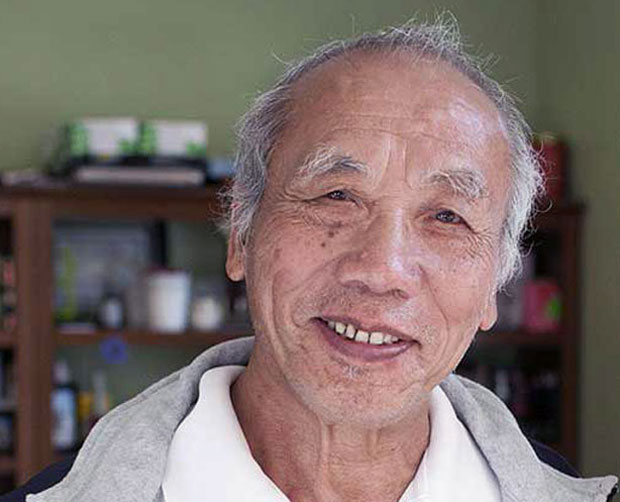
Sichuan author Tie Liu in an undated photo. File photo
Authorities in China’s southwestern provinces of Sichuan and Guangxi have detained a writer and a publisher who published politically ‘sensitive’ material, as the ruling Chinese Communist Party continues its campaign against any form of political dissent.
Sichuan-based writer and publisher Huang Zerong, better known by his pen-name Tie Liu, disappeared from his home last week, police in Sichuan’s provincial capital Chengdu told his wife, Ren Hengfang.
Tie, 82, had earlier been detained from March 28 to April 1 on suspicion of “picking quarrels and stirring up trouble.”
He was later placed under six months’ “residential surveillance” by Chengdu police.
Rights lawyer Liu Xiaoyuan said Tie Liu is technically still serving that sentence, and can be redetained at any time if he breaks the conditions of his bail.
“If he breaks the rules under suspended sentenced, then he can be taken back into detention,” Liu said. “They can just change his ‘residential surveillance’ to a location other than his home.”
“But they still have to inform the family,” he said. “It’s not yet clear whether he is being taken on a forced vacation, or what is going on.”
Ren confirmed to RFA on Monday that her husband had disappeared, but declined to comment further.
“Tie Liu hasn’t written anything recently, I have no idea why they took him away again,” she told the New York-based Committee to Protect Journalists (CPJ).
“He will be 83 at the end of this month. What ‘trouble’ can an old man like him provoke?” the CPJ quoted her as saying in a statement on its website.
Leaders criticized
The “picking quarrels and stirring up trouble” charge was linked to 11 articles Tie wrote, six of which mentioned high-ranking Chinese leaders, including Communist Party propaganda chief Liu Yunshan, sources said at the time.
Tie wrote of Liu Yunshan: “He is more evil than [former propaganda chief] Deng Liqun and more left-wing than [former Xinhua news agency chief] Hu Qiaomu.”
CPJ Asia Program Coordinator Bob Dietz called on Beijing to “stop harassing” Tie Liu.
“Pulling an 82-year-old man … from his home and detaining him without telling his family his whereabouts would take China’s recent history of detaining writers and intellectuals to new lows,” Dietz said in a statement.
“Chinese authorities should immediately disclose whether they are holding [Tie Liu] and why, and stop harassing him.”
Tie was also held for five months last year on suspicion of “illegal business activity” after he published a collection of memoirs of people persecuted under late Chairman Mao Zedong.
Tie served a total of 23 years in prison during the “anti-rightist” political campaigns of the Mao era, before being rehabilitated with the advent of Deng Xiaoping’s economic reforms in 1980.
Suspect charges
Meanwhile, authorities in Guangxi announced over the weekend that they have detained the former head of the Guangxi Normal University Press on “bribery” charges.
Guangdong rights activist and author Ye Du said the detention of He Linxia, 58, came after he published a number of cutting-edge titles under the publisher’s Lixiangguo imprint, including a planned book by historian Gao Hua.
The Lixiangguo titles weren’t published through traditional channels, but were sold via the online auction site Taobao, using an account which the authorities have now shut down, Ye said.
“The account they used to sell these books on Taobao was forced to shut down last month,” Ye said. “The Lixiangguo imprint had already been closed for a few months.”
Ye said there is a new ideological campaign afoot targeting any form of dissent.
“There is no room for traditional values under this new ideology,” Ye said. “You could say we now look back to the previous era of openness as a golden age that will never return.”
“The authorities will no longer tolerate these books about constitutional politics; they won’t allow them to be published any more.”
Constitutional scholar Chen Yongmiao said he believes He’s detention is politically motivated.
“There are so many of these cases that get politicized, and then become sensitive,” Chen said. “That’s the way this case is going, too.”
“There is a problem with selective enforcement of the law; they use this sort of charge to find fault, and then they use it as an excuse to suppress your freedom of speech and publication,” he said.
Reported by Qiao Long for RFA’s Mandarin Service, and by Wen Yuqing for the Cantonese Service. Translated and written in English by Luisetta Mudie.
Source: http://www.rfa.org/english/news/china/books-05232016123637.html
